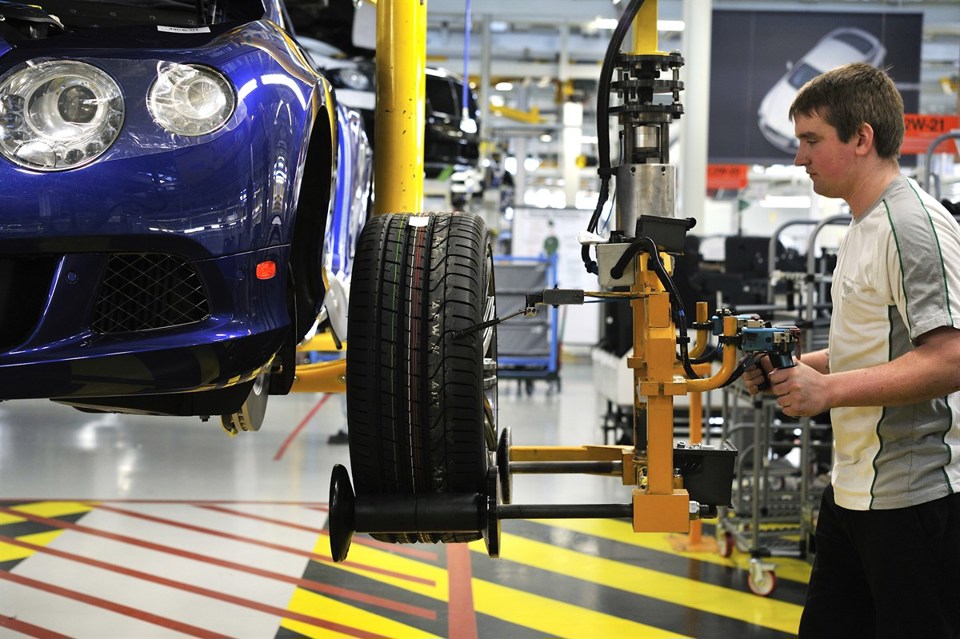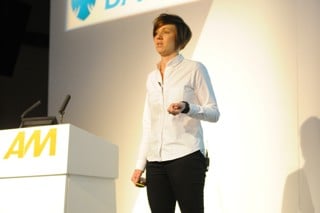Fewer than four in ten (38.8%) of new car registrations were made by private buyers so far this year despite a widening choice of over 125 battery electric models - up 38% from last year - according to the Society of Motor Manufacturers and Traders’ (SMMT) latest monthly figures.
BEVs now make up 20.7% of the market driven by the introduction of new models and intense manufacturer discounting. About one in five BEV models is now priced lower than the average petrol or diesel vehicle, thanks to subsidies and schemes like salary sacrifice.
The figure follow last week’s Autumn Budget, where the Chancellor reaffirmed Labour's commitment to EVs by announcing initiatives to stimulate demand. The proposals include extending low company car tax, improving charging infrastructure, and changing Vehicle Excise Duty (VED) first-year rates from April 2025 to make electric vehicles more financially attractive to consumers and businesses.
Sue Robinson, chief executive of the National Franchised Dealers Association (NFDA) noted: "Both private demand and fleet saw declines this month. Although the Chancellor acknowledged the significance of electric vehicles in the Autumn Budget, such as maintaining current incentives for EVs in company car tax, investment in charging infrastructure is also vital to drive demand further."
Despite the government’s extension of incentives in the Autumn Budget, the SMMT agreed, saying that the market now needs further incentives for consumers.
“Manufacturers are currently shoring up demand with historic levels of support, but this is unsustainable in the long term as it threatens viability. Without the government support to match the manufacturers’ commitment, there must be an urgent review of the market’s performance and the regulatory mechanisms driving the transition,” it said.
In October, the UK new car market saw a decline of 6.0%, with 144,288 new registrations - 9,241 fewer than last year. Declines affected all major buyer categories: fleet registrations which had previously propped up the market fell by 1.7%, business purchases dropped by 12.8%, and private buyer demand continued its two-year slide, decreasing by 11.8%.
While petrol and diesel registrations took substantial hits in October, falling by 14.2% and 20.5% respectively, battery electric vehicles (BEVs) stood out as the only powertrain category to experience growth, surging by 24.5%.
SMMT chief executive Mike Hawes highlighted the delicate balance, saying: “Massive manufacturer investment in model choice and market support is making the UK the second-largest EV market in Europe. But diminishing overall uptake is not good news for the economy, investment, or the environment. Significant interventions in incentives, infrastructure, and regulation are essential to accelerate the market shift and meet our decarbonisation goals.”
John Cassidy, managing director of sales at Close Brothers Motor Finance, said: “Following the recent Budget, there will be hope that the fuel duty freeze will ease pressure on consumers’ wallets and stimulate demand. Many will be looking to see if announcements, such as the continuation of company car tax incentives until 2028 and the differentials in Vehicle Excise Duty, will have any impact on the demand for electric vehicles.”
Ian Plummer, commercial director of Auto Trader, added: “Manufacturers are making significant efforts to bridge the price gap to electric – as shown by the average 12% electric discount on Auto Trader’s site in October - but the market is still not achieving the volumes needed. With the reinstated 2030 ban date on the sale of new petrol and diesels vehicles looming, we urgently need to make the positive case for EVs to ensure a broader healthy new car market.”
James Hosking, managing director of AA Cars, commented: “The new car market experienced another bump in the road in October, as sales slumped for the second time in three months. The arrival of new ‘74 plates provided a shot in the arm in September as the market returned to growth following August’s downturn.
“However, the recovery was short lived as it wasn’t enough to sustain growth in new car sales last month. The market's stability remains fragile, impacted by broader economic headwinds that have dampened private buyer demand and resulted in a 11.8% decline in sales."
Philip Nothard, insight director, Cox Automotive, added: “October’s -6.0% decline in the UK car market highlights significant industry challenges. Private demand for EVs remains weak despite an array of model choices and heavy, unsustainable discounting from manufacturers.
"While BEV uptake rose, driven largely by fleet purchases, this growth masks an underlying softness in consumer interest. The gap between ambitious EV targets and actual consumer behaviour is widening, making it clear that broader support is needed for a fast and fair transition."



















Login to comment
Comments
No comments have been made yet.